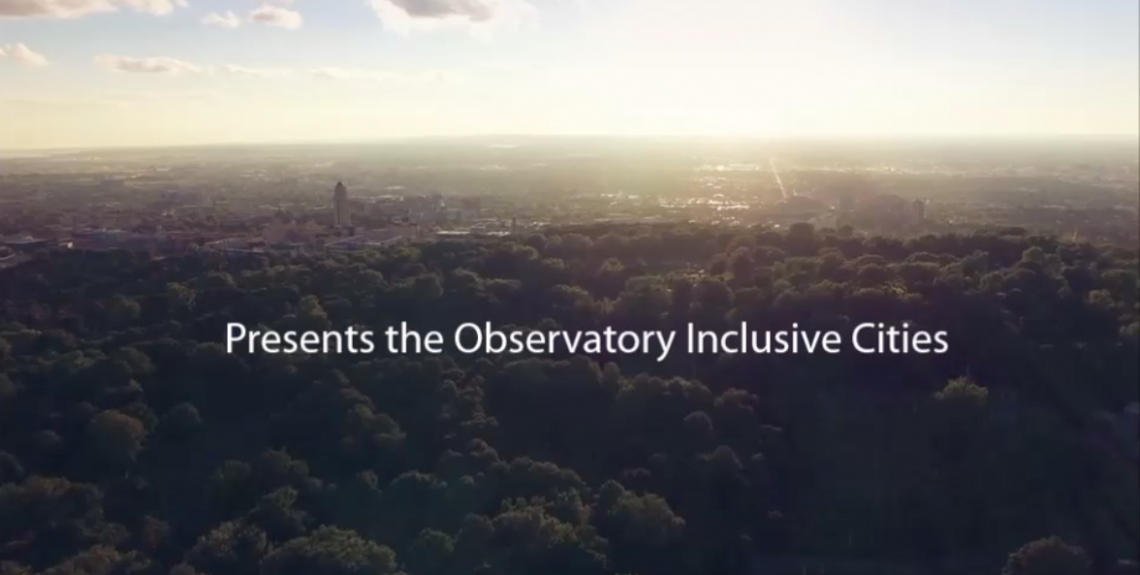The Committee on Social Inclusion, Participatory Democracy and Human Rights relaunches the Inclusive Cities Observatory through a campaign to promote its almost 70 case studies. This initiative will take place throughout 2017, with the goal to value within our network all the learning carried out thanks to local communities who have shared their experience in the framework of the Observatory. In this regard, the Committee aims at widening the dissemination of knowledge while advocating for the right to the city.
A common horizon: Implementing the Right to the City
The Right to the City has increasingly progressed in the last year, thanks to the articulated mobilization of civil society and local governments. Indeed, for the first time, local governments of UCLG gathered in Bogotá decided to place the right to the city at the heart of their strategy for the coming years (see Declaration of Bogotá). At the international level, for the first time in a text of the United Nations, the Habitat III Agenda included a mention to the right to the city.
Today, it is up to the main promoters of the right to the city, among which the Committee, to concretize at a local level the right to the city, as a common vision of fair, solidary, democratic and sustainable human settlements, cities and metropolitan areas, in front of a worrying process of commodification of cities operating in the detriment of their inhabitants. That is why the Committee is relaunching today the Observatory of Inclusive Cities. In the same regard, in the coming months, a mapping of local practices of co-creation of cities will be launched as well.
Monitoring public policies for social inclusion is an extensive and complex task, as it involves assuming a wide range of interrelated issues while responding to different approaches. Considering that exclusion must be addressed in a structural way, and not only through palliative actions, the Committee considers that inclusion must be at the heart of the political agenda of local governments (see For a World of Inclusive Cities). Indeed, social inclusion is linked to the way in which cities and territories are built, and thus relates to issues such as housing, urban planning or management of public services among others.
Either through the public policies they promote or partnering with the social organizations of their territories, local governments are essential to deal with exclusion phenomena. Nevertheless, their action alone is insufficient to challenge the competitiveness and attractiveness paradigm that has so much determined the way in which cities have been built up in recent years mostly contributing to an increase of urban inequalities.
Therefore, local councils, given that they are the closest tier of government to city inhabitants, are at the forefront of the protection, guarantee and promotion of human rights, especially in the fields of education, housing, health, environment and security. In addition, local governments are key players in preventing discrimination against minorities, marginalized groups and migrants.
For the same reasons, local governments are also at the heart of the implementation of major international orientations such as the Sustainable Development Goals, the Paris Agreement and the New Urban Agenda. The observatory thus intends to illustrate the capacity to implement major global initiatives by local governments.
The Observatory: a bank of local actions implementing the Right to the City
In 2011, the Committee on Social Inclusion, Participatory Democracy and Human Rights created the Inclusive Cities Observatory, a framework for analysis and reflection on social inclusion policies at the local level. Today, the Observatory contains sixty-eight case studies of policies and initiatives regarding access to public services, gender equality, environmental protection and the fight against inequalities. The aim of this Observatory is to identify and analyse experiences that can provide insights to inspire other cities in the design and implementation of the right to the city through their social inclusion policies.
The initiative was developed with the scientific support of Professor Yves Cabannes of the University College of London and the research team of the Centre for Social Studies of the University of Coimbra, which has worked under the supervision of Professor Boaventura de Sousa Santos.
An intense promotional activity throughout 2017
By relaunching the Observatory, the Committee aims to improve its content, spread its learning experiences to other local governments, and provide examples to promote the concrete implementation right to the city. The memory of these experiences can nourish institutions and organizations alike.
In addition, throughout this year, the Committee will add new case studies on the inclusion of migrants in European cities and in the Southern Mediterranean region.
Finally, thanks to the work realized with Bernardo Gutierrez during the Congress, this work will also be accompanied by a mapping of practices enabling the realization of the right to the city, soon available online.
If you have a case to submit, please contact the Committee at [email protected]


